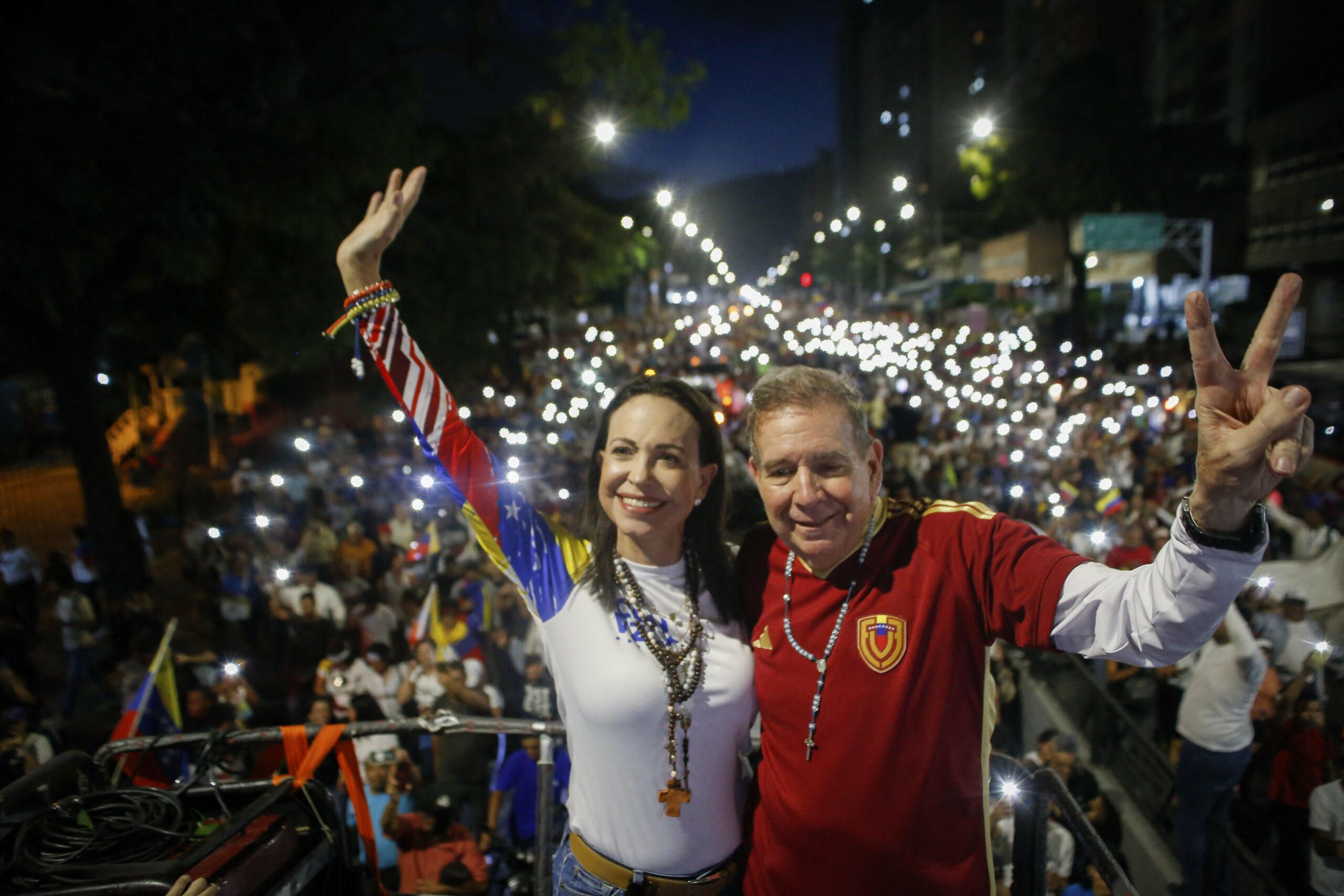- July 16, 2024
Biden should listen to Venezuelan opposition leader’s warning about Maduro’s tricks

Andres Oppenheimer
The Biden administration should listen to what Venezuelan opposition candidate Edmundo Gonzalez Urrutia told me about the latest resumption of U.S. talks with Venezuela’s dictatorship ahead of the July 28 presidential elections.
In essence, he said: Don’t be duped by last-minute promises by Venezuela’s regime.
Gonzalez Urrutia, 74, a retired ambassador who is leading in most opinion polls, told me that he supported the July 3 remote meeting between top Venezuelan and U.S. officials about the upcoming elections. But he added that lifting U.S. oil sanctions on Venezuela’s regime should not be part of pre-election talks.
In an exclusive interview by Zoom that he gave me for CNN en Español and the Miami Herald, he said that Venezuelan dictator Nicolas Maduro has often offered negotiations with Washington as a way to project a more moderate image at home shortly before crucial elections, only to break his promises later.
“He has done that on several occasions,” Gonzalez Urrutia told me. “It’s a move to buy time, and to present a less hostile (political) climate at a key time of the campaign. “
Asked to elaborate, he said Maduro is probably seeking to convey a feeling of normalcy “and give the impression that tensions with the United States are easing.” The two countries have not had ambassadors at each other’s capital for about 10 years, and that brings many problems, he added.
In addition, Maduro may have accepted restarting talks with Washington because of economic pressures. “He badly needs economic relief” from U.S. oil sanctions, Gonzalez Urrutia told me.
Maduro has often demanded that the Biden administration lift oil sanctions on Venezuela. The Biden administration reinstated sanctions in April, six months after lifting them in exchange for Maduro’s promises that he would lift bans on Maria Corina Machado and other opposition leaders from running for office.
At the remote July 3 U.S.-Venezuela meeting, the two sides agreed to maintain “constructive and respectful” communication, Venezuela’s chief negotiator, National Assembly President Jorge Rodriguez, said. The Biden administration said it had asked the Venezuelan regime to ensure that the elections be “competitive and inclusive,” the Reuters news agency reported.
Asked whether the Biden administration did the right thing in participating in the latest talks with the Maduro regime, Gonzalez Urrutia responded that “it’s good” to use any occasion to demand respect for the rules of democracy.
But when I asked him whether Washington should once again offer to lift some economic sanctions in exchange for Venezuela’s promises to remove obstacles for fair elections, Gonzalez Urrutia said, “I wouldn’t go that far. I think the two situations are separate. One thing does not depend on the other.”
He added, “The international community does not have any other path than to denounce irregular situations, and demanding that the results be respected.”
Gonzalez Urrutia, who was picked by opposition leader Machado after she was barred from running — another substitute candidate she appointed was also banned — is under no illusion that this will be a free and fair election.
About 4.5 million Venezuelan voters living abroad have not been allowed to register, he reminded me. In addition, the regime has arrested many opposition activists to intimidate others ahead of the vote. Credible foreign election monitoring missions such as that of the European Union have been banned, and there is no freedom of the press.
It would be a big mistake for the Biden administration to give Maduro a new economic lifeline expecting him to make democratic concessions, or in the dubious belief that helping Venezuela increase its oil exports would bring down U.S. gasoline prices in the months remaining before the November U.S. elections.
Washington and other democracies should prepare for coordinated new sanctions against Venezuela in case Maduro tries to once again steal the elections. It’s too late for U.S. goodwill gestures, especially when the previous ones failed miserably.

